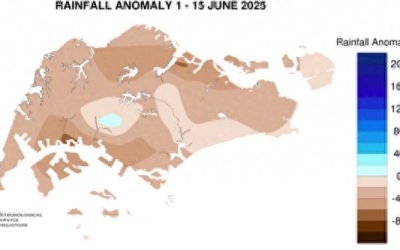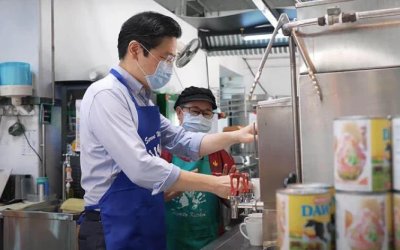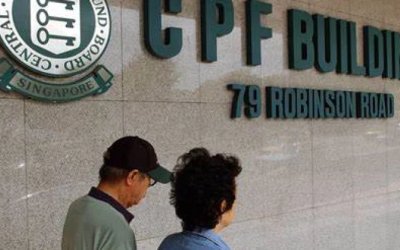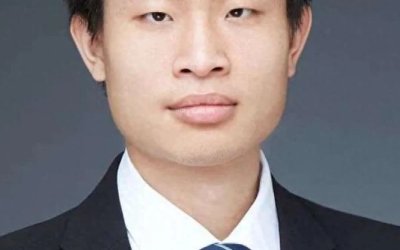First, we will provide greater assurance to lower-income families that they can afford to send their children to preschool. All families on ComCare assistance or residing in public rental flats already automatically qualify for maximum childcare subsidies. As Deputy Prime Minister Wong announced in the Budget speech, we will extend similar support to more lower-income families. All lower-income families with a monthly household income of $6,000 and below will qualify for the maximum amount of childcare subsidies for their income tier. Up to 17,000 additional children stand to benefit when we introduce this move from the fourth quarter of 2024.
Second, we will expand proactive outreach to all lower-income families from the third quarter of 2024 to encourage them to enrol their children in preschools. Preschool outreach workers and ComLink+ family coaches will work with parents to help them understand the importance of preschool and to enrol their child in a suitable preschool. As part of the ComLink+ Packages, ComLink+ families can benefit from financial top-ups when they enrol their children early and send them to preschool regularly.
Third, we will support families in maximising the benefits of quality preschool education. We recognise that children from lower-income families may require more support even after they enrol in preschools. On average, among children who are enrolled in Anchor Operator preschools, children from lower-income families have a monthly attendance rate of about 72%, lower than the 79% attendance rate of their middle-income peers. Their families may also have less resources to support their learning at home.
From the second quarter of this year, we will provide more resources to selected Anchor Operator preschools to equip them in providing effective and timely support to the children under their care. Anchor Operators will co-fund this targeted support and use the additional resources to support the children, such as providing dedicated small group learning lessons and addressing the challenges that families face in sending their children to preschool regularly. As Minister Maliki shared, MOE will also similarly strengthen initiatives in MOE Kindergartens to support children from lower-income families.
Taken together, these measures will help address the challenges that lower-income families face and enable their children to learn, play and develop holistically alongside their peers.
Even as we step up these efforts, we cannot overlook the importance of the home environment and parents' role in shaping their children's development. This is why KidSTART, which has supported more than 8,500 children to date, focuses on equipping parents with the knowledge and skills to nurture their children. In partnership with the FFL Council, we will increase the accessibility of parenting resources for lower-income families.
In this way, the efforts of parents and preschool educators complement each other and lay a strong foundation for the children to flourish.
Our efforts to strengthen families are made possible by a strong social service ecosystem. This comprises a group of deeply committed partners, professionals and volunteers. The different groups of partners, our SSAs, academics and Institutes of Higher Learning (IHLs) and corporates, come together to support those in need.
To meet the evolving needs of our society, the social service sector needs 2,000 more professionals over the next five years. Mr Keith Chua asked about our plans to attract, recruit and retain professionals. The Government and partners, including SSAs, must work together to make the social service sector a career of choice.
One key aspect is to ensure that the salaries in the sector are commensurate with the hard work and skillsets of our professionals. Last year, we reviewed the Social Service Sector Salary Guidelines to ensure salaries are competitive with comparable roles in competing markets. MSF and National Council of Social Service (NCSS) also adjusted funding to ensure professionals supporting our funded programmes can be paid within the guidelines. Currently, around 80% of employees in the sector are paid within the salary guidelines. We expect our funded providers to adhere to and pay employees within the guidelines over the next three years. We will work closely with SSAs that require additional support, including providing targeted consultancy support.
The social service sector is a people-oriented sector. All the more, we need to care for our people, so that they can better care for our beneficiaries. Apart from a range of NCSS' resources on self-care and wellness that our professionals can access, the SkillsFuture Tripartite Taskforce also promotes emotional and mental wellness at work through the Joy@Social Services movement.
MSF and NCSS will continue creating pathways for more to enter the sector and progress in their career. For instance, we are working with IHLs to engage students. We are also attracting mid-career entrants through the Career Conversion Programmes and these professionals can benefit from the new SkillsFuture Level-Up Programme announced by Deputy Prime Minister Wong in the Budget Statement. Together with SSAs, we are improving the value proposition of roles through job redesign, strengthening their organisational capabilities and working on talent retention measures. To support the development of our professionals, we have the Skills Framework for Social Service. We are also working with relevant professional associations and providers to monitor the standards, qualification and training required for the different professions. Together, we will build a stronger social service sector.
Our ecosystem is made of another important group of people: our volunteers. Last year, we celebrated the partnerships with our social service partners. This year, we build on these partnerships and have dedicated 2024 as the Year of Celebrating Volunteers. Anyone, and everyone, can be a volunteer. Volunteers are people who give generously their time, talent and treasures to support others.
First, our volunteers give generously their time. We see these in the individuals that make up our MSFCare Network. They work with MSF in initiatives, such as ComLink+. Miss Susan Lim is one such volunteer. Since October 2022, she has been befriending Mdm Marlina and her son.























